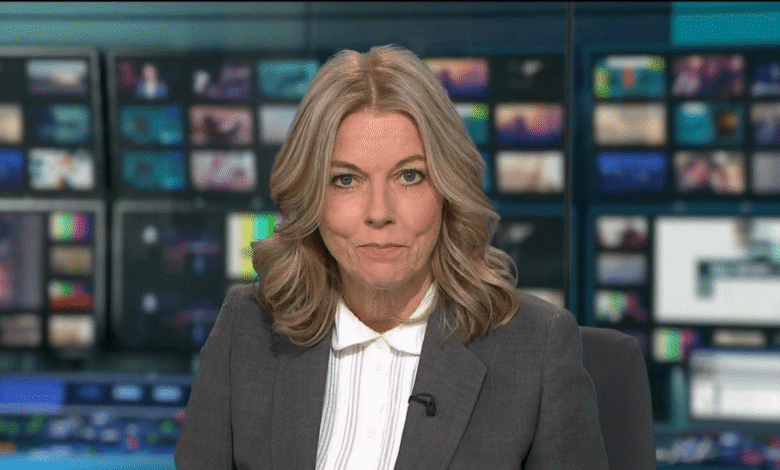The Mary Nightingale Voice Change: Social Media Reactions and Possible Causes

For decades, Mary Nightingale has been one of the most respected news presenters on British television. Known for her poise, clarity, and professionalism, she has become a familiar face on ITV News at Six. In recent years, however, many viewers have begun to comment on something different: the Mary Nightingale voice change. This article examines the observations made, the reasons behind the discussion, the potential causes of these changes, and the spread of speculation online.
Who Is Mary Nightingale?
Before diving into the discussion about the Mary Nightingale voice change, it’s essential to understand her professional background.
Mary Nightingale was born in Scarborough, North Yorkshire, in 1963. Throughout her career, she has worked as a television presenter, journalist, and newsreader, establishing a reputation for remaining calm under pressure and being highly credible in her reporting. Since joining ITV News at Six in 2001, she has become one of the most recognizable figures in British journalism.
Her career has included major reporting assignments, political coverage, and high-profile news stories. For years, her delivery was praised for its consistency and authority. That is why recent observations of her voice have stood out to loyal viewers.
Public Observations of the Mary Nightingale Voice Change
The discussion of the Mary Nightingale voice change began mainly on social media platforms. Viewers posted short clips and comments noting that her voice occasionally sounded hoarse, raspy, or less steady than before. These moments, though not constant, were noticeable enough to spark conversations.
Some fans expressed concern, speculating that it might indicate a health issue. Others pointed out that vocal strain is common in broadcasting, especially for professionals who speak live on air multiple times per week. Regardless of the reason, the conversation has continued to grow, making “Mary Nightingale voice change” a trending online search phrase.
Media Coverage and Speculation
While Mary Nightingale or ITV has made no official statement about the voice change, smaller media outlets and entertainment blogs have published articles speculating about her vocal health. Some headlines suggest she may have experienced a “vocal health scare,” while others discuss the natural impact of aging on a broadcaster’s voice.
It is worth noting that major news outlets have not reported any medical confirmation of a long-term condition. The majority of articles are based on viewer observations rather than direct interviews or press releases. This distinction is important because it distinguishes fact from speculation.
Possible Reasons Behind a Voice Change
When audiences notice something like the Mary Nightingale voice change, it is natural to ask what might cause it. Although only a medical professional could confirm an exact reason, here are some general and commonly known causes of vocal changes in public speakers:
- Vocal Strain – News anchors speak for long stretches, often under pressure. Over time, this can cause temporary hoarseness.
- Laryngitis or Colds – Even a minor infection can change the quality of the voice, making it raspy or weak.
- Acid Reflux (LPR) – Many professionals with demanding vocal work experience experience irritation of the vocal cords due to reflux.
- Vocal Cord Nodules or Polyps – Common among singers and broadcasters, these growths can alter pitch and clarity.
- Age-Related Changes – As people age, their vocal cords lose elasticity, resulting in a thinner or shakier sound.
- Fatigue and Stress – A demanding career like broadcasting can also contribute to subtle vocal changes.
Again, it is critical to stress that these are general explanations. None has been confirmed in Mary’s case.
Social Media’s Role in Amplifying the Mary Nightingale Voice Change
The rise of social media has played a massive role in making the Mary Nightingale voice change a widely discussed topic. Clips from ITV broadcasts are often shared on platforms like X (formerly Twitter) and TikTok, where small changes in appearance or sound are magnified and debated.
For public figures, this kind of constant scrutiny means that even temporary conditions—such as having a cold—can spark speculation about health or aging. In Mary’s case, conversations about her voice have continued for months, illustrating how quickly small observations can escalate into widespread online discussions.
Deepfake Confusion and Online Chatter
A significant event that fueled online conversations about Mary was a deepfake video incident in early 2024. A manipulated video using her likeness circulated online, leading Mary to publicly state that she was “livid” about the misuse of her image.
Although this incident was unrelated to her voice, it brought a surge of attention to her online presence. As a result, more people began noticing her broadcasts, and the Mary Nightingale voice change became another talking point within the broader conversation about her career.
Viewer Reactions: Concern and Support
Not all discussion about the Mary Nightingale voice change has been negative. Many loyal fans have expressed support, emphasizing that a change in voice does not affect her professionalism, credibility, or ability to deliver the news.
On forums and comment sections, viewers often highlight her decades of service as one of Britain’s most trusted broadcasters. Some argue that the focus on her voice is misplaced and that she should be celebrated for her continued presence on national television.
The Importance of Separating Fact from Speculation
In today’s media environment, speculation can easily spread faster than facts. While it is clear that many viewers have noticed the Mary Nightingale voice change, there is no confirmed medical explanation available.
This highlights a broader issue: public figures, especially journalists and broadcasters, often face intense scrutiny over natural changes in their appearance or sound. Without official confirmation, it is more accurate to describe the Mary Nightingale voice change as a matter of observation rather than a diagnosed health issue.
What This Means for the Future of Broadcasting
The conversation about the Mary Nightingale voice change also raises questions about expectations in broadcasting. Television anchors are under pressure to maintain not only accuracy in reporting but also a consistent appearance and sound. Yet, like anyone else, they experience aging, illness, and temporary setbacks.
As AI, deepfakes, and social media accelerate the spread of speculation, future broadcasters will likely face similar scrutiny. Mary’s case is just one example of how natural changes can become magnified in the digital era.
Conclusion
The Mary Nightingale voice change has become a topic of discussion among ITV viewers and online communities. While many have noticed hoarseness or changes in her delivery, no official statement has confirmed a medical condition. Instead, the conversation highlights how quickly small observations can spread online, amplified by social media and speculation.
You May Also Read: Adrian Higham: The Charismatic Antiques Dealer Who Captures Hearts and History




